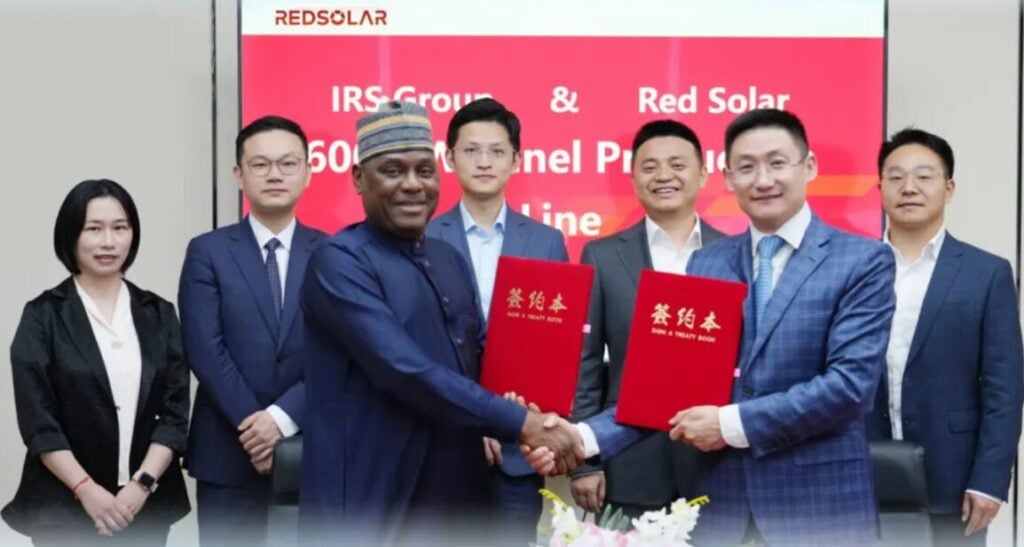
Three stories from China this week, with GCL Tech receiving an environmental accreditation for a manufacturing facility, Redsolar investing into Nigerian PV and CMEC-GL supporting a solar-plus-storage project in Australia.
GCL Tech sets new carbon footprint record
GCL Tech announced that, as certified by the French Environment and Energy Management Agency (ADEME), the full lifecycle carbon footprint of granular silicon produced at its Hohhot production base in China was reduced to 18.050 kg of carbon dioxide equivalent/kg.
Try Premium for just $1
- Full premium access for the first month at only $1
- Converts to an annual rate after 30 days unless cancelled
- Cancel anytime during the trial period
Premium Benefits
- Expert industry analysis and interviews
- Digital access to PV Tech Power journal
- Exclusive event discounts
Or get the full Premium subscription right away
Or continue reading this article for free
This metric sets a new global record for the lowest carbon for in a single granular silicon production base, excluding industrial silicon, and is particularly relevant considering the EU’s carbon tax will officially come into effect from 1 January next year, affecting the operational performance of Chinese PV companies that import into Europe.
As a foundational material in the PV supply chain, the carbon footprint of granular silicon is directly linked to the industry’s carbon neutrality progress. This certification confirms that all four of GCL Tech’s granular silicon production bases have already received carbon footprint accreditation from internationally recognised authorities.
Redsolar New Energy Technology signs agreement for Nigeria’s first module production line
On 12 May, Redsolar New Energy Technology officially signed an agreement for the turnkey construction of a 600MW PV module factory in Kano State, which will be Nigeria’s first localised PV module production line.
According to the agreement, Redsolar New Energy will support the IRS Group’s construction and operation of the facility, through the transfer of production line machinery, supply of equipment and power plant development.
According to statistics from Nigeria’s Rural Electrification Agency (REA), over 6,000 rural communities in the country still lack access to electricity, and industrial electricity costs remain high. Once it becomes operational, the module factory is expected to achieve an annual capacity of 600MW, providing foundational support for distributed power plant development in remote areas, industrial parks and medical facilities.
CMEC-GL signs agriPV-plus-storage project agreement in Western Australia
CMEC-GL has signed a cooperation agreement with the Tonic Group and Precious Iron for a new solar PV project in Western Australia.
Under the agreement, the three parties will jointly develop a new solar PV project in Binningup, Western Australia. The first phase of the project will utilize approximately 87 hectares of land near the Binningup Industrial Park, with plans to construct an 85MWp agrivoltaic (agriPV) project.
The developers plan to add a 42MW storage facility, with a storage duration of two hours. Half of the electricity generated will be fed into the grid for market-based trading, while half will be sold to surrounding high-energy consuming users through power purchase agreements (PPAs).






